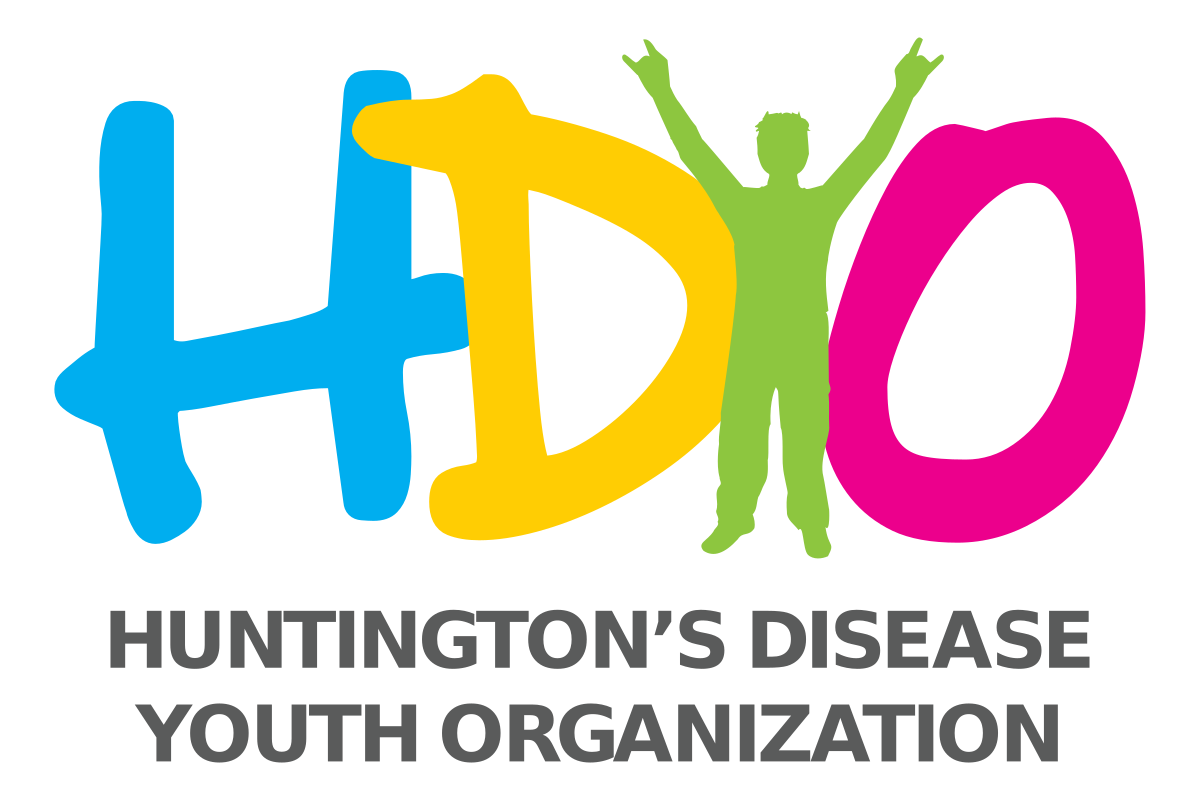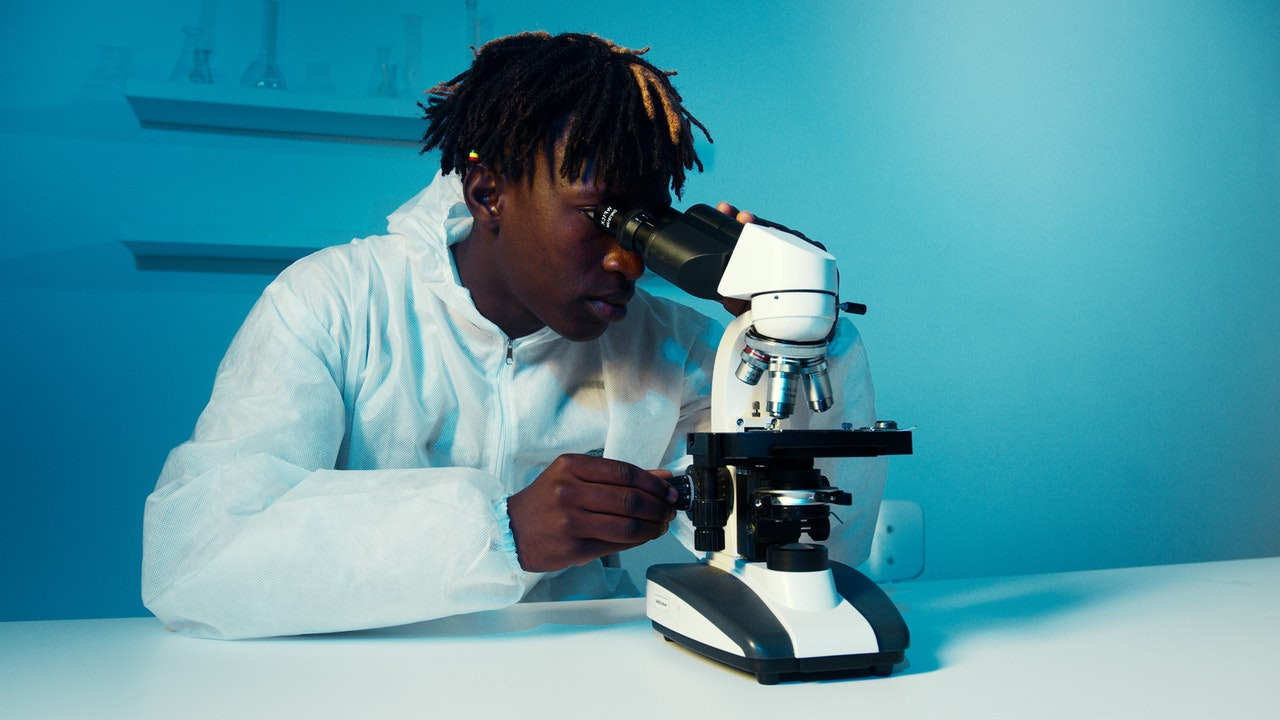Genetic Testing
October 05, 2023

HDYO has more information about HD available for young people, parents and professionals on our site:
www.hdyo.org
Updated in 2023 by Education and Research Committees
In 1993, scientists discovered the location and function of the gene that causes Huntington's disease (HD). Since then individuals who are at-risk with no symptoms of HD can undergo genetic testing to learn if they have inherited an expanded copy of the gene and will, therefore, develop the condition in the future. This is called 'predictive testing.'
Of note, ‘predictive testing,’ which is the focus of this section, is different from ‘symptomatic testing.’ In ‘symptomatic testing,’ an undiagnosed person who has symptoms suggestive of HD will undergo a series of medical assessments and tests to confirm the diagnosis.
The science behind testing
Huntington’s disease is a genetic condition and actually all humans have the gene that may cause Huntington's disease - even those who never develop the condition. So if we all have the gene, why do some get Huntington's disease when others do not? The difference is people who develop symptoms of Huntington's disease have a larger expansion on the gene than normal.
What is this gene expansion?

Without getting too scientific, there is a section in this specific gene which repeats itself over and over again. This is known as a 'CAG repeat'. Everyone has a CAG repeat in this specific gene, even those who won’t get HD (most people have around 16-17 CAG repeats on this gene). However, people with Huntington's disease tend to have much more repeats than usual and this leads to Huntington's disease.
The reason we are explaining CAG repeats is because of their relevance to predictive genetic testing for Huntington's disease. When people at-risk for Huntington's disease have a predictive test, that person's DNA is sent to a lab, and the clinical scientists will use special machines and lab techniques that will count how many CAG repeats that person has in the gene specific to Huntington's disease. Once they know how many repeats a person has, they can tell if they will get the disease or not.
CAG Repeats are split into 4 categories:
If a person has less than 27 CAG repeats then they are what is called, 'negative' - meaning they will not get Huntington's disease and they are not at risk of passing the disease onto any biological children that person has.
If a person has between 27-35 CAG repeats, they will not develop Huntington's disease, but there may be a small risk of passing the condition on to their biological children. The exact risk varies based on several factors, including the number of CAG repeats and the sex of the transmitting parent.
Whereas somebody who has a CAG repeat between 36-39, they are at risk for HD in their lifetime but may not develop symptoms or may start HD at a much later age. They have a 50% risk of passing the expanded copy of the gene on to their biological children.
Someone who has 40 CAG repeats or more will develop symptoms of HD in their lifetime and the risk to their biological children is 50%.
For more information about the genetics of HD, please visit the the HD Gene: Under the Microscope, and the What is HD? articles. You may also find the having children article helpful if you are wondering about the possibility of passing the gene on to children - there are some options to have children (potentially) without the risk of HD.
Preparing for genetic testing
Predictive genetic testing is the only way to determine if a person without symptoms of HD has inherited the expanded gene. However, it can not accurately predict the age a person will develop HD or the severity of symptoms they will have.
Deciding whether to go for predictive testing is an important life decision which needs to be thought about a lot. It should also be your decision. There are many issues to think about before proceeding with testing, including:
- Ability to cope with positive or negative results
- Relationships with family and friends
- Insurance
- Family planning
- Career decisions
- Support system
'I got tested when I was 19 and although I knew about insurance, I was too young to really understand how important it was to have insurance in place. So I just pushed it to one side and focused on the testing process. Now, some years later, I do wish that I had taken out insurance.' Joel
'I spent the entire testing process feeling that I was going to test negative. When I got my results, and they were positive... it was pretty tough to take. It took me at least a few months to move on from there.' Marc
Where to start genetic testing
For those who are interested in exploring the option of predictive testing, it is recommended that they be referred to a medical center with experience and expertise in genetic testing for HD. Some areas of the world may not have good access to these types of testing centers, if you’re not sure then speak with your doctor or local HD association about local options.
There are some options for genetic testing that aren’t recommended, such as using a genetic testing online service. These types of testing processes are often not set up to support you for what is actually a very emotional journey.
'It's very much a two way process whereby you can explore the option of a predictive test and what it entails, including the possible test outcomes. There may be discussions around alternatives to testing, possible impact on other family members and the question of timing of the test. It can vary how ready an individual feels to proceed with a test - and that's fine - we'd want to take it at a pace that feels right for the individual.' Tiffany, Genetic Counselor
Genetic testing is typically only performed in people who are at least 18 years old. This is because of the significance of the decision to test and people gradually getting more mature as they get older. However, at-risk people under the age of 18 may find it beneficial to begin speaking with genetic counselors or other specialists to learn what predictive testing entails and address any questions they may have regarding HD.
Though some at-risk people may feel external pressure to move forward with predictive testing, there is no rush. The decision to test is very complex with many considerations factoring in has pros and cons. While meeting with medical specialists and moving through the genetic testing process, an individual considering predictive testing can decide to take a break or stop the process at any time. Some people even provide a blood or saliva sample for genetic testing and then decide that they don’t want to receive the results. It is important that at-risk people take their time and make an informed decision about if, when and how they would like to learn about their results.
'I haven't set a date on when I'll test, but I want it to be on my terms and not on other people's terms. I've encountered people in my life who have pressured me to test and not test. After the countless words from people, I finally realised it is not up to them and I have to feel it in my heart when the time is right.' Stacey
The genetic testing process
Once the person being tested and their medical specialist feel that they are ready to move forward with predictive genetic testing, a blood or saliva sample will be collected and sent to a genetic testing laboratory. The sample will be tested to determine if the person inherited an expanded copy of the gene and their number of CAG results

After the sample is received by the laboratory, people generally have to wait some weeks to receive the results (this can very depending on location).This can be a difficult time with many people experiencing increased anxiety.
'When I say that the weeks between getting my blood drawn and getting my results were agonising, I mean it. I believe those were the hardest weeks of my life. Every day, it was a battle of thoughts going through my head, making it hard to sleep. How do you deal with such an internal battle? You are literally driving yourself crazy, an emotional wreck, getting no sleep because your mind is racing, and scared that at the moment, you don't know what your future holds.' Laura
Getting your results
The day someone gets their results to a HD genetic test can feel so surreal, no matter the result. It can take quite some time to actually have feelings about your results. It is also a change to your HD status (you’ve gone from at risk to tested positive or negative) so this also can take a lot of time to get used to. Below are emotions that individuals may experience after receiving a positive or negative test result.
Testing Positive.
Hearing that you’ve tested positive for HD is difficult to take, even if you spent the process thinking you might be positive. It can hit you quite hard at first. That little bit of hope you had that you may not have HD has now completely gone. You may go through a variety of emotions over the next months. It takes some time but you can begin to process your results and accept them. It is life changing news to hear but you’re not symptomatic yet… so motivation can be had to enjoy life. And yes you will have days that may be difficult but life will carry on and find what keeps you moving forwards.
'When I tested positive I must have spent the next 6 months feeling down and sorry for myself - I was not very productive during that time! But I was always looking to move forwards and accept my results, and gradually I started to make progress. Now, 3 years later, I am very happy with my life and have accepted my results.' Ben
After receiving a positive predictive test, some pre-symptomatic people also report that, initially, it can be challenging to interact with affected family members in more advanced stages of the disease.
'After I tested positive it became really hard for me to care for my father who had Huntington's disease. I kept looking at him with his symptoms, and thinking "that will be me in 20 years". It was really difficult to deal with at first, but after a while I settled down again and things got back to normal.' John
However, over time and with the appropriate support, most people who test positive for HD will begin to accept their results...
Testing Negative
After testing negative for HD, it can take time to process your new HD status. After a bit of time many people will initially feel happiness and/or relief. However, even negative test results can be associated with challenging emotions.
Some people may experience ‘survivor guilt,’ for not inheriting HD when other family members have tested positive or already have symptoms of the condition.
'Telling my siblings was emotionally complex. I desperately wished they could have had the same result. It seemed so unfair how the disease picks and chooses whom it will take, and whom it will leave behind to witness the devastating effects. But as I rang each one of my wonderful brothers, they were thrilled and cheered down the phone.' Jen, as she tells her brothers (both of whom are positive) she has tested negative.
Others may also recognize that while they will not develop HD themselves, they will still be impacted by the condition as they spend time with and potentially care for their loved ones with HD.
'I received a negative result and the biggest feeling I felt was a huge amount of guilt. Some people may think I was selfish not showing that I was happy with this result, but knowing many people who tested positive and having an untested brother, all I could feel was sheer guilt. It is important to speak to friends and family about the result, my father encouraged me to celebrate the negative result, however I felt I could not do that. I suffered with receiving a negative result for months as personally it was a huge mental obstacle for me. It wasn't until I sought deeper advice that I understood that receiving a negative result is nothing to be ashamed about. It is important still however to continue being a part of the Huntington's disease community and supporting others dealing with the struggles of the disease.' Lisa
People with family histories of HD may consider the condition part of their identity. This can lead individuals to factor in their at-risk status when making plans around education, careers, relationships, and other aspects of their future. In these cases, testing negative can feel very confusing and disruptive. Some people may also be concerned that their test result could negatively impact their relationship with other family members.
'Testing negative was without a doubt, the most incredible news I've ever received. The day I received my results was surreal - and a gigantic emotional roller-coaster. What started as the happiest day of my life turned into the hardest night...I was prepared to feel some guilt, but wasn't ready to be completely overwhelmed. I knew logically that I shouldn't feel guilty, but it hit me...HARD! I couldn't get over the fact that I was, for lack of a better term, 'safe'...and the guilt that came with that realization was incredible. I felt so horrible knowing that so many people I love aren't as lucky as I am, or their future was still up in the air. The fear of telling other people sent me into panic attacks and it took everything I had just to keep breathing. Thankfully, I have people in my life who were more supportive than ever, and gave me the exact message I needed to hear: 'That guilt will become a good thing and make you more inspired than ever to make a difference'. Slowly but surely I began to feel like myself again...and even though I still feel guilty some days, I just take it one day at a time and try to keep doing everything I can to contribute to the fight against Huntington's disease!' Elaine
As with those who test positive, most people who receive a negative test result will also come to accept their result with time and support.
Support
Navigating the emotional impact of predictive testing can be challenging and each stage of the process has emotional hurdles to overcome. It is normal to experience both negative and positive emotions throughout the genetic testing process, so it is important to have a support system in place. This may include mental health professionals, family, friends, and other at-risk people who have already gone through the testing process for HD.
HDYO has a lot of resources to help those impacted by HD such as events, peer connections, professional support 1-2-1. Contact HDYO here if you want to learn more about what we can offer you. We also have lots of programs people can request to be apart of. There are also local HD organizations that can provide resources too, you can see that list here.



